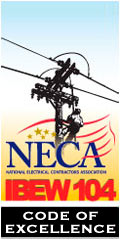
| Past Issues/Subscribe | Employment | neppa.org | Legislative Update | Advertise | October 2014 |

|
We are a month away from mid-term elections and the number-crunchers tell us we are scheduled for the traditional mid-term drop in voting participation. It is hard to fathom with the record low satisfaction rates with Congress that people are less willing to exercise their right to create change.
The experts attribute this lack of action mainly to gerrymandering, apathy and reduced get-out-the-vote efforts in non-Presidential election years. Gerrymandering is the practice of politically motivated re-districting of individual congressional districts, which in this case results in more homogenous voting communities. This of course leads to the incredibly high incumbency rates. When you do not have true competing political debates at the district level, it is easy to be uncompromising when in office. You can go to Washington, D.C., with a sense of mandate. This has been the trend of late in the elections for the House of Representatives.
The opposing requirement for Senators to draw upon a more diverse politically thinking base to win elections creates the stalemate between houses that frustrates each of us. That being said, maybe it is truly ourselves that we are disappointed in. We allow the gerrymandering, because we want people to vote our positions and we treat the election process as an us-versus-them scenario. We point to the change in the civil decorum in Washington, D.C., as the source of this problem. We talk of how they used to reach across the aisle after hours. However, the extreme name calling and public disparaging of opponents goes back to our founders.
What changed? We did. With all of the options in news, information and opinions, we have become adverse to true debate. We go to the information sources that reinforce what we think and we allow them to mix opinion with facts. The days of Walter Cronkite and "the Fairness Doctrine" are gone. I admit there is one news source I tend to ignore or avoid. Then I go to get my car serviced and it is on. When I do watch, I see some new stories that I haven’t been exposed to and some opinions I may not agree with, but at least by listening I can better understand them.
On the bright side, New England as a populace has not drifted as far into the apathy that other parts of the country have. The voting percentages for New Englanders are higher than the national and other regional averages. The voting statistics from the 2012 election show that residents of our states exceed the national average:
Do these higher voting rates give New Englanders any advantage? I am not sure. But, they do provide an opportunity for NEPPA members. By communicating clearly and effectively to our constituents we have the opportunity to promote and advance the importance of strong public power utilities. As trusted community sources, we get past the banter.
As integral parts of our communities, our continued efforts to educate consumers to our benefits and issues are crucial to our success. So, make the most of the next 30 days. Take part in Public Power Week. Use this link Public Power Week to get APPA resources for next week’s Public Power Week. Communicate to your consumers the uniqueness of your business model and the importance of maintaining it. And of course, encourage them to get out and vote in November!
|




